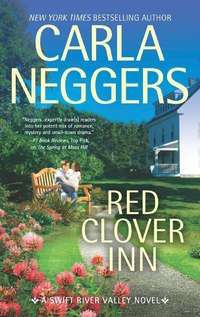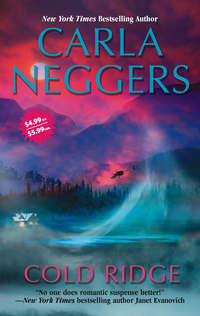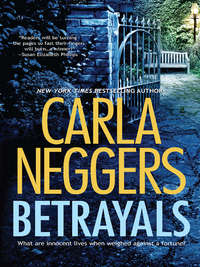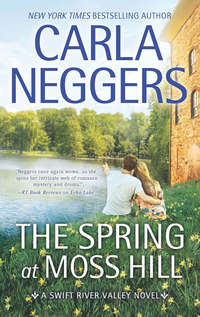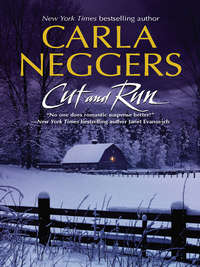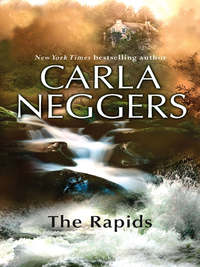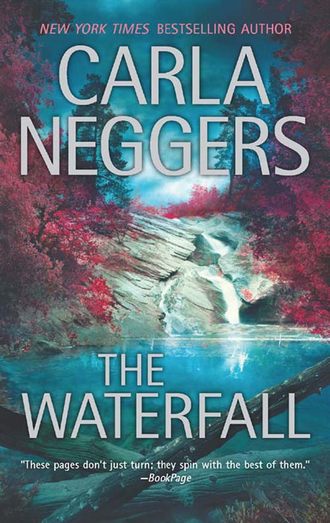
Полная версия
The Waterfall
Lucy tried not to squirm. Sweat had matted her shirt to her lower back. So much to do, so many responsibilities. She didn’t need some crackpot targeting her. “Just get rid of the damn bullet, okay?”
Rob crossed his arms on his chest. “Sure, Lucy.”
She could guess what he was thinking—what anyone would be thinking. That she was on edge, frayed and crazed, more than would be warranted by a rapidly expanding business, widowhood, single motherhood and an impending trip west. That he wanted to call her on it.
Lucy took advantage of his natural reluctance to meddle. “I’m sorry if I seem a little nuts. I have so much to do with this whirlwind trip to Wyoming this weekend. You can hold down the fort here?”
“That’s in bold print on my resume. Can hold down forts.”
His humor didn’t reach his eyes, but Lucy pretended not to notice. She smiled. “What would I do without you?”
He didn’t hesitate. “Go broke.”
She laughed, feeling better now that the bullet was out of her pocket. These incidents had to be unrelated. It was kooky and paranoid to think they were part of some kind of bizarre conspiracy against her. What would be the motive?
She left Rob to his computer aggravations and bullet disposal, and went outside. She’d ask Rob later what he thought about this Widow Swift business. She had a good life here, and that was what counted.
“I made lemonade,” Madison called from the front porch.
“Great. I’ll be right there.”
Lucy reminded herself it was only in recent months her daughter had come to feel aggrieved by their move to Vermont.
“I’m pretending I’m living in an episode of ‘The Waltons,’” Madison said when her mother joined her amidst the hanging petunias and wicker furniture. Indeed, she had filled one of Daisy’s old glass pitchers with lemonade and put on one of her threadbare aprons. Sebastian hadn’t taken anything of his grandmother’s before he’d sold her house.
“Did you ask the boys if they want any?” Lucy asked.
“They’re still out back digging worms. It’s disgusting. They smell like dirt and sweat.”
“You used to love digging worms.”
“Yuck.”
Lucy smiled. “Well, I’ll go ask them. And since you made the lemonade, they can clean up.”
The two boys were still hard at work on the edge of the vegetable garden, precariously close to Lucy’s tomatoes. Not that she minded. She wasn’t as enterprising a gardener as Daisy had been. She’d added raised beds and mulched paths to take up space and had cultivated a lot of spreading plants, like pumpkins, squash and cucumbers. She had little desire, however, to can and freeze her own fruits and vegetables. This was enough.
“Madison made lemonade. You boys want some?”
“Later,” J.T. said, too preoccupied with his worm-digging to look up.
He, too, had Colin’s coppery hair and clear blue eyes, although his sturdy frame was more Blacker than Swift. Lucy smiled at the thought of her kind, thickset father. She had inherited her mother’s slender build and fair coloring, and both her parents’ love of the outdoors. They’d recently retired to Costa Rica to run a hostel, leaving behind long careers at the Smithsonian. Lucy planned to visit them over Thanksgiving, taking Madison and J.T. with her and working on the details of a Costa Rica trip she wanted to offer to her clients next winter. It was a long, painstaking process that involved figuring out and testing every last detail—transportation, food, lodging, contingency plans. Nothing could be left to chance.
Flying to Costa Rica to see them, Lucy thought, made more sense than flying off to Wyoming to see Sebastian Redwing.
J.T. scooped up dirt with his hands and piled it into a number-ten can he and Georgie had appropriated from the recycling bin. “We want to go fishing. We’ve got a ton of worms. Want to see?”
Lucy gave the can of squirming worms a dutiful peek. “Lovely. If you do go fishing, stay down here. Don’t go up near the falls.”
“I know, Mom.”
He knew. Right. Both her kids knew everything. Losing their father at such a young age hadn’t eroded their self-esteem. They had Colin’s optimism, his drive and energy, his faith in a better future and his commitment to making it happen. Like their father, Madison and J.T. loved having a million things going on at once.
Lucy left the boys to their worms and returned to the front porch, where Madison had brought out cloth napkins and a plate of butter cookies to go with her lemonade. “Actually, I think I’m more Anne of Green Gables today.”
“Is that better than John-Boy Walton?”
Madison wrinkled up her face and sat on the wicker settee, tucking her slender legs under her. “Mom—I really, really don’t want to go to Wyoming. Can’t I stay here? It’s only for the weekend. Rob and Patti could look in on me. I could have a friend stay with me.”
Lucy poured herself a glass of lemonade and settled onto a wicker chair. Her daughter was relentless. “I thought you couldn’t wait to get out of Vermont.”
“Not to Wyoming. It’s more mountains and trees.”
“Bigger mountains, different trees. There’s great shopping in Jackson.”
She brightened. “Does that mean you’ll give me money?”
“A little, but I meant window-shopping. It’s also very expensive.”
Her daughter was unamused. “If I have to sit next to J.T. on the plane, I’m inspecting his pockets first.”
“I expect you to treat your brother with respect, just as I expect him to treat you with respect.”
Madison rolled her eyes.
Lucy tried her lemonade. It was a perfect mix of tart and sweet, just like her fifteen-year-old daughter. Madison untucked her legs and flounced inside, the sophisticate trapped in the sticks, the long-suffering big sister about to be stuck on a plane with her little brother.
Lucy decided to give her the weekend to come around before initiating a discussion on attitude and who wouldn’t get to do much driving until she changed hers.
She put her feet up on the porch rail and tried to let the cool breeze relax her. The trip to Wyoming made no sense. She knew it, and her kids at least sensed it.
The petunias needed watering. She looked out at her pretty lawn with its huge maples, its rambling old-fashioned rosebush that needed pruning. She’d just gone to town with her fifteen-year-old behind the wheel, inspected a can of worms and dealt with her daughter’s John-Boy/Anne of Green Gables martyr act and a bullet on her car seat.
The Widow Swift at work.
Lucy drank more lemonade, feeling calmer. She’d managed on her own for so long. She didn’t need Sebastian Redwing’s help. She didn’t need anyone’s help.
* * *
J.T. permitted his mother to help him pack after dinner. Lucy kept her eyes open for firearms, bullets and secret antisocial tendencies. She found none. His room betrayed nothing more than a twelve-year-old’s mishmash of interests. Posters of Darth Maul and peregrine falcons, stuffed animals, Lego models, sports paraphernalia, computer games, gross-looking superheroes and monsters, way too many Micro Machines.
He didn’t have a television in his room. He didn’t have a computer. Dirty clothes were dumped in with clean on the floor. Drawers were half open, a pant leg hanging out of one, a pair of boxers out of another.
The room smelled of dirty socks, sweat and earth. A dormer window looked out on the backyard, where she could still see evidence of the digging he and Georgie had done.
“You didn’t bring your worms up here, did you?” Lucy asked.
“No, me and Georgie freed them.” He looked at her, and corrected, “Georgie and I.”
She smiled, and when she turned, she spotted a picture of Colin and J.T. tacked to her son’s bulletin board. Blood rushed to her head, and she had to fight off sudden, unexpected tears. The edges of the picture were cracked and yellowed, pocked with tack holes from the dozen times J.T. had repositioned it. A little boy and a young father fishing, frozen in time.
Lucy smiled sadly at the image of the man she’d loved. They’d met in college, married so young. She stared at his handsome face, his smile, his tousle of coppery hair. It was as if she’d gone on, propelled forward in time, while he’d stayed the same, untouched by the grief and fear she’d known since the day his shattered father had knocked on her door and told her that his son—her husband—was dead.
The searing pain and shock of those early days had eased. Lucy had learned to go on without him. So, in their own ways, had Madison and J.T. They could talk about him with laughter, and remember him, at least most of the time, without tears.
“You can pack the extra stuff you want to take in your backpack,” Lucy said, tearing herself from the picture. “What book are you reading?”
“A Star Wars book.”
“Don’t forget to pack it.”
She counted out shirts, pants, socks, underwear, and debated whether to bother looking in the cellar and the garage. J.T.’d had nothing to do with the bullet in her car.
She set the clothes on his bed. “You’re good to go, kiddo. Can you shove this stuff into your suitcase, or do you need my help?”
“I can do it.”
“Don’t forget your toothbrush.”
She went down the hall to her daughter’s room. The door was shut, her music up but not at a wall-vibrating volume. If Madison needed help, she’d ask for it. Lucy left her alone.
Her own bedroom was downstairs, and on the way she stopped in the kitchen and put on a kettle for tea. She’d pack later. It was an old-fashioned, working kitchen with white cabinets, scarred counters and sunny yellow walls that helped offset the cold, dark winter nights. The biggest surprise of life in Vermont, Lucy had discovered, was how dark the nights were.
She sank into a chair at the pine table and stared out at the backyard, wondering how many nights Daisy had done exactly this in her sixty years alone. A cup of tea, a quiet house. The Widow Daisy. The Widow Swift.
It was dark now, the long summer day finally giving way. Lucy could feel the silence settle around her, the isolation and loneliness creep in. Sometimes she would turn on the television or the radio, or work on her laptop, write e-mails, perhaps call a friend. Tonight, she had to pack. Wyoming. Good God, she really was going.
She made chamomile tea and took her mug with her down the hall to the front door, locked up. Shadows shifted on the old wood floors. She had no illusions the ancient locks would stop a determined intruder.
A sound—the wind, maybe—took her into the dining room.
She hadn’t touched it since moving in. It still had the old-fashioned button light switch for the milk-glass overhead, Daisy’s faded hand-hooked rug, her cabbage-rose wallpaper, her clunky dining room set. A 1920s upright piano stood along one wall.
A breeze brought up goose bumps on Lucy’s arms.
Someone had opened a window. Again.
The tall, old windows were balky and difficult to open. Since she almost never used the dining room during the summer, Lucy didn’t bother wrestling with them. She’d meant to have them looked at before the good weather, but hadn’t gotten around to it.
She felt along the wall with one hand and pressed the light switch. It had to be a kid. Who else would sneak into her house and open the windows?
Light spilled into the room, casting more shadows. It could be a great room. One of these days she’d have the piano tuned, the rug cleaned, the wood floors sanded and oiled. She’d hang new wallpaper and refinish the table, and have family and friends over for Thanksgiving. Even her father-in-law, if he wanted to come.
The floor seemed to sparkle. Lucy frowned, peering closer.
Shards of glass.
She jumped back, startled. The window wasn’t open. It was broken, its upper pane spider-cracked around a small hole. A triangle of glass had hit the floor and shattered.
Lucy set her mug on the table and gingerly touched the edges of the hole. It wasn’t from a bird smashing into her window, or an errant baseball. Too small.
A stone?
A bullet?
She spun around, her heart pounding.
It couldn’t be. Not twice in one day.
She saw plaster dust on the chair next to the piano, directly across from the window. Above it was a hole in the wall.
Holding her breath, Lucy knelt on the chair and reached up, smoothing her hand over the hole. The edges of the wallpaper were rough. Plaster dust covered her fingertips.
The hole was empty. There was no bullet lodged there.
She sank onto her hands and knees and checked the floor. She looked under the piano. She flipped up the edges of the rug. She could feel the hysteria working its way into her, seeping into her pores, sending poison into every nerve ending.
She flopped back onto her butt and sat there on the floor. So, she thought. There it is. Some bastard had shot a hole in her dining room window, sneaked into her house, removed the bullet and sneaked back out again.
When? How? Why?
Wouldn’t someone—Madison, J.T., Georgie, Rob, the damn mailman—have heard or seen something?
They’d run up to Manchester last night. It could have happened then, when no one was home.
The windows faced east across the side yard and the garage, the barn, Joshua Brook. A hunter or target shooter could have been in the woods near the brook and accidentally landed a stray bullet in her dining room, panicked, slipped inside and dug it out.
“Ha,” she said aloud.
This was no accident.
Lucy was shaking, sick to her stomach. If she called the police, she’d be up all night. She’d have to explain to Madison and J.T. Rob’s grandmother had a scanner—she’d call Rob, and he and Patti would come over.
And that was just the beginning. The police would call Washington. The Capitol Police would want to know if the incidents had anything to do with Jack Swift. He would be notified.
She staggered to her feet and picked up her tea.
Now was she desperate enough to ask Sebastian Redwing for help?
She ran into the kitchen, dumped her tea down the sink and locked the back door. She went into her bedroom to pack. “You need a dog,” she muttered to herself. “That’s all.”
A big dog. A big dog that barked.
“A big, ugly dog that barks.”
He’d take care of intruders, and she could train him to go fishing with J.T. Even Madison would like a dog.
That settled it. Never mind Redwing. When she got back from Wyoming, she’d see about getting a dog.
Two
Sebastian slipped off his horse and collapsed in the shade of a cottonwood. He was out on the far reaches of his property where no one could find him. Still, the bastards had. Two of them. In a damn Jeep. It was bouncing toward him. He could take his horse through the river, but the idiots would probably come after him.
He sipped water from his canteen, took off his hat and poured a little water over his head. He could use a shower. The air was hot and dusty. Dry. He hoped the dopes in the Jeep had water with them. He wasn’t planning on sharing any of his canteen. Well, they could drink out of the river.
The Jeep got closer. “Easy,” Sebastian told his horse, who didn’t look too worried or even that hot.
A man jumped out just as the Jeep came to a stop about twenty yards off. “Mr. Redwing?”
Sebastian grimaced. It was never a good sign when someone called him Mr. Redwing. Not that chasing him in a Jeep was a good sign.
He tipped his hat over his eyes and leaned back on his elbows. “What?”
“Mr. Redwing,” the man said. “I’m Jim Charger. Mr. Rabedeneira sent me to find you.”
“So?”
Charger didn’t speak. He was a new hire, probably waiting for Sebastian to get up and act like the man who’d founded and built Redwing Associates, a premier international security and investigative firm. Instead he kept his hat over his eyes, enjoying the relief from the Wyoming summer sun.
Finally, he sighed. Jim Charger wasn’t going anywhere until he delivered his message. Sebastian liked Plato Rabedeneira. They’d been friends since their early twenties. He’d trust Plato with his life, the lives of his friends. But if Plato had been the other man in the Jeep, Sebastian would have tied him to this cottonwood and left him.
“Okay, Mr. Charger.” He tipped his hat back and eyed the man in front of him. Tall, blond, very fit, dressed in expensive western attire that was no doubt dustier now than it had ever been. A Washington import. Probably ex-FBI. Sebastian could feel the blood pounding behind his eyes. “What’s up?”
If Sebastian Redwing wasn’t proving to be what Jim Charger had expected, he kept it to himself. “Mr. Rabedeneira asked me to give you a message. He says to tell you Darren Mowery is back.”
Sebastian made sure he had no visible reaction. Inside, the blood pounded harder behind his eyes. He’d left Mowery for dead a year ago. “Back where?”
“Washington.”
“What’s Plato want me to do about it?”
“I don’t know. He asked me to deliver the message. He said to tell you it was important.”
Darren Mowery hated Sebastian more than most of his enemies did. Once, Sebastian would have trusted Mowery with his life, with the lives of his friends. No more.
“One other thing,” Charger said.
Sebastian smiled faintly. “This is the thing Plato said to tell me if I didn’t jump in your Jeep with you?”
No reaction. “Mowery has made contact with a woman in Senator Swift’s office.”
Jack Swift, now the senior senator from the state of Rhode Island. A gentleman politician, a man of integrity and dedication to public service, father-in-law to Lucy Blacker Swift.
Damn, Sebastian thought.
At the reception following Lucy Blacker and Colin Swift’s wedding, Colin had made Sebastian promise he’d look after Lucy if anything happened to him. “Not,” Colin had said, “that Lucy will want looking after. But you know what I mean.”
Sebastian hadn’t, not really. He didn’t have anyone in his life to look after. His parents were dead. He had no brothers and sisters, no wife, no children. Professionally, though, he was pretty damn good at looking after people. That mostly had to do with keeping them alive and their pockets from getting picked. It didn’t have to do with friendship, a promise made to a man who would be dead thirteen years later at age thirty-six.
Colin must have known. Somehow, he must have guessed he would have a short life, and his wife and whatever children they had would end up having to go on without him.
When Sebastian had made his promise, he’d never imagined he’d have to keep it.
“What do you want me to tell Mr. Rabedeneira?” Charger asked.
Sebastian tilted his hat back over his eyes. A year ago, he’d shot Darren Mowery and thought he’d killed him. It was carelessness on his part he hadn’t known until now whether Mowery was dead or alive. In his business, that kind of lapse was intolerable. There was no excuse. It didn’t matter that Darren had once been his mentor, his friend, or that Sebastian had watched him send himself straight into hell. When you shot someone, you were supposed to find out if you’d killed him. It was a rule.
But this was about Jack Swift. It wasn’t about Lucy. Plato would have to handle Darren Mowery. Given his personal involvement, Sebastian would only muck up the works.
“Tell Plato I’m retired,” Sebastian said.
“Retired?”
“Yes. He knows. Remind him.”
Charger didn’t move.
Sebastian pictured Lucy on the front porch of his grandmother’s house, and he could almost feel the Vermont summer breeze, hear the brook, smell the cool water, the damp moss. Lucy had needed to get out of Washington, and he’d made it happen. He’d kept his promise. He no longer owed Colin.
He decided to stop thinking about Lucy. It had never done him any good.
“You’ve delivered your message, Mr. Charger,” Sebastian said. “Now go deliver mine.”
“Yes, sir.”
The man left. Sebastian suspected he hadn’t lived up to Jim Charger’s expectations. Well, that was fine with him. He didn’t live up to his own expectations. Why should he live up to anyone else’s?
He’d quit, and that was the end of it.
* * *
Barbara Allen fumbled for the keys to her Washington apartment. Acid burned in her throat. Sweat soaked her blouse, her dozens of mosquito bites stinging and itching. Part of her wanted to cry, part to scream with delight. Incredible! At last, she’d acted. At last!
She unlocked her door and pushed it open, gasping at the oppressive heat. She’d turned off the air-conditioning before she’d left for Vermont. Vermont had been cooler than Washington, wonderfully exhilarating. She quickly shut her door and leaned against it, letting herself breathe. She was home.
She had no regrets. None. This surprised her more than anything else. Intellectually, she knew what she’d done was wrong. Her obsession with Lucy was even, perhaps, a little sick. Normal people didn’t spy on other people. Normal people didn’t stalk and terrorize other people.
But if anyone deserved to live in fear, it was Lucy Blacker Swift. She was the worst kind of mother. Self-indulgent, impulsive, reckless. Colin had provided a necessary check against her worst excesses, but with his death, there was no one to rein her in.
For more than a year, Barbara had taken a secret thrill in sneaking up to Vermont on a Friday night to watch Lucy, heading back to Washington on Sunday. She was Jack Swift’s eyes and ears, his confidante, his trusted personal assistant. She’d given twenty years of her life to him, suffered every loss with him. The ups and downs of his political career, the assassination attempt, the long, slow, painful death of his wife, the sudden death of his son.
Then, Lucy’s galling decision to move to Vermont. It was the last straw. Barbara knew Jack was appalled at how she was raising his son’s children. Madison, aching for a real life. J.T., running wild with his dirty little friends. But Jack would never say anything, never do anything to force Lucy to wake up.
Well, Barbara had. At last, at last.
Let people underestimate her. Let them take her for granted. She knew. She had the courage and self-discipline to do what needed to be done.
With one foot, she nudged her suitcase into the corner by the coat closet. She’d unpack later. She turned the air-conditioning on high and went into her living room. Like the rest of her apartment, it was simply decorated in contemporary furnishings, its clean lines and clean colors reflecting her strength of character. She despised anything cute or frilly.
She sat in a chair by the vent. Her apartment was in a nondescript building on the Potomac; it was one of the smallest units, with no view to speak of. Not that she spent much time here. She was in the office by eight and seldom out before seven.
She closed her eyes, feeling the cool air wash over her. She’d worn long pants and a long-sleeved shirt to hide her bug bites. Each one deserved a tiny Purple Heart. They were her badges of courage. It wasn’t weakness that had made her act—it was strength, courage, conviction.
She’d been meticulous. She wasn’t an idiot. She hadn’t felt the need to do anything dramatic to conceal her presence. She’d stayed at a Manchester inn and driven a car she’d rented in Washington. She’d had a plausible cover story in case she had been discovered.
Oh, Lucy, I was just stopping in to see you and the kids. I took a few days off to go outlet shopping, do a little hiking. By the way, did you hear gunfire? I saw someone going up the dirt road over by the brook with a rifle. They must have been target practicing awfully close to your house.
It had never come to that. She’d conducted exhaustive surveillance before implementing her plan, even something as simple as the late-night hang-up. Lucy was too self-centered, too stupid, to catch her.
Firing into the dining room had been Barbara’s supreme act. It was even better than the bullet on the front seat. That was just the proverbial icing on the cake. Barbara had waited until Lucy and the children left for Manchester. She was parked up on the dirt road, as if she were off to check out the falls. She crossed Joshua Brook, jumping from one rock to another, and dropped down low, working her way up the steep, wooded bank until Lucy’s house came into view. She lay flat on her stomach in the brush. Mosquitoes buzzed in her ears, chewed on every inch of exposed skin. Her tremendous self-discipline kept her focused.



